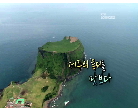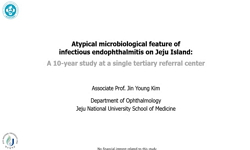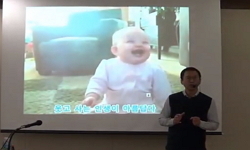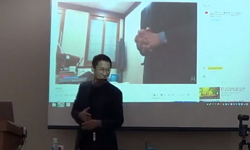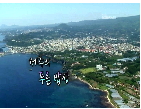오늘날 기술 발전으로 인하여 일하는 방식은 다변화하며 혁신적인 방향으로 발전하고 있다. 컴퓨터와 기술 발전으로 고정된 업무공간을 벗어나 원격으로 일하는 디지털 노마드라는 개념이 ...
http://chineseinput.net/에서 pinyin(병음)방식으로 중국어를 변환할 수 있습니다.
변환된 중국어를 복사하여 사용하시면 됩니다.
- 中文 을 입력하시려면 zhongwen을 입력하시고 space를누르시면됩니다.
- 北京 을 입력하시려면 beijing을 입력하시고 space를 누르시면 됩니다.
https://www.riss.kr/link?id=T16082344
- 저자
-
발행사항
서울 : 건국대학교 건축전문대학원, 2022
-
학위논문사항
학위논문(석사) -- 건국대학교 건축전문대학원 , 실내건축설계학과 , 2022. 2
-
발행연도
2022
-
작성언어
한국어
- 주제어
-
발행국(도시)
서울
-
형태사항
105 ; 26 cm
-
일반주기명
지도교수: 김종진
-
UCI식별코드
I804:11004-200000604586
- 소장기관
-
0
상세조회 -
0
다운로드
부가정보
국문 초록 (Abstract)
오늘날 기술 발전으로 인하여 일하는 방식은 다변화하며 혁신적인 방향으로 발전하고 있다. 컴퓨터와 기술 발전으로 고정된 업무공간을 벗어나 원격으로 일하는 디지털 노마드라는 개념이 나타나면서 업무 환경과 행태는 점차 진화하였다.
이러한 혁신의 배경은 업무를 인식하는 태도와 업무 방식의 변화에서도 기인한다. 과거에는 일을 하는 목적이 생계와 직결되었고, 그로 인해 삶과 일을 하나로 인식하였다. 그러나 시대가 변화하며 일의 목적은 점차 다양해졌다. 생활의 영위를 위한 목적 외에도 자아실현이나 개인에게 가치 있는 일에 시간을 투자하고자 하는 요구가 늘어나며 변화가 시작되었다. 일하는 목적이 이전보다 주관적이고 세분화되며 다양해진 것이다. 이러한 변화는 우연히 발생한 것이 아니라, 다양한 요구에 맞는 기술과 환경의 혁신이 있었기 때문에 가능했다.
이러한 업무 방식의 변화는 지난 팬데믹으로 인해 더욱 가속화되었고 선택의 상황이었던 원격근무가 한때에는 필수의 상황이 되기도 하였다. 공유오피스나 기존 시설을 이용한 서비스가 늘어나고 있지만 이러한 상황에 걸맞은 재택과 원격근무를 위한 리모트워크에 대응하는 공간은 아직 미비한 현실이다.
이에 따라 본 논문은 리모트워크를 시행하는 리모트워커를 위한 새로운 공간 제안을 목표로 하였다. 리모트워크는 장소와 시간의 제약이나 업무와 휴식의 구분 없이 어디에서나 일하는 업무 방식을 말한다. 점차 업무와 휴식의 경계가 모호해지면서 업무공간에 휴식의 도입은 근무자에게 업무 스트레스를 완화하고 긴장감을 낮추는 작용을 한다. 따라서 본 프로젝트는 제주도 서귀포 지역을 대상지로 선정하여 아름다운 자연경관을 통한 휴식을 제공하고자 한다.
대상지에 계획할 리모트워크를 위한 레지던스 오피스는 업무와 휴식을 목적으로 하는 원격 근무자, 즉 리모트워커를 위한 공간으로 근무자들이 장, 단기간 머무르며 일할 수 있는 복합공간이다. 이와 관련한 국내외 사례들을 분석하고 공간 특성과 프로그램을 도출하였다. 분석 결과와 대상지 특성을 반영하여 디자인 콘셉트를 설정한 후 그 콘셉트에 맞게 공간을 설계하였다.
프로젝트의 타이틀은 ‘제주에서 비우고 채우다’이다. 이는 휴식과 업무라는 다소 이질적인 기능을 복합하는 과정에서 도출하였다. 두 기능을 다 담을 수 있는 가능성의 공간으로 ‘비움’의 개념을 적용하고, 여기에서 느껴지는 여유로운 이미지를 휴식과도 연결할 수 있다. 이와 대비하여 집중과 몰입이 필요한 업무의 기능을 비워진 공간 사이에 ‘채움’으로써 둘의 균형을 맞춘다. 이러한 개념을 공간에 적용해 다양한 시선과 경험을 전달하는 것을 목적으로 하며, 공간을 경험하는 개개인이 스스로 내면을 비우고 채우는 과정을 반복하기를 바랐다.
점차 휴식과 업무의 경계는 모호해지고 있다. 업무공간의 디자인 방향이 인간과 자연 중심으로 변화하고 있고 이는 근무자의 요구가 있다는 것을 반증한다. 국내에서도 이러한 변화의 흐름은 발현되고 있으며, 이는 본 연구와 관련된 리모트워크를 위한 공간, 그리고 레지던스 오피스의 설계가 지속 연구될 가능성을 드러낸다.
본 연구를 통해 리모트워크 업무 방식을 위한 레지던스와 오피스로 구성한 복합공간을 설계하고, 이를 자연 경관이 좋은 제주에 위치시켜 업무와 휴식을 동시에 경험하는 새로운 공간을 제시하고자 한다.
다국어 초록 (Multilingual Abstract)
Today, the way people work is developing innovatively with diverse changes due to technological advancement. As the term digital nomads emerged to describe people who work remotely outside of a fixed work space with the development of computers and te...
Today, the way people work is developing innovatively with diverse changes due to technological advancement. As the term digital nomads emerged to describe people who work remotely outside of a fixed work space with the development of computers and technology, work environment and behavior also gradually evolved.
The background of such innovation also stems from changes in the attitude toward work and work methods. In the past, the purpose of work was connected directly to livelihood. Therefore, life and work were perceived as one. With the change of times, however, the purpose of work gradually diversified. This is because, the need to invest time in self-realization or personally valuable work increased besides the goal of making a living. As a result, the purpose of work become more subjective, segmented, and diverse than before. These changes did not happen by chance but were possible because of technological and environmental innovations catering to diverse needs.
Changes in work methods have accelerated due to the recent COVID-19 pandemic. First, remote work, which was once an option, has become a necessity. Second, services using shared offices or existing facilities are increasing. However, the reality is that there is still not enough space that responds the needs of remote workers for telecommuting and remote work suitable for the current situation. Accordingly, this study aims to propose a new space for remote workers.
Remote work refers to a work method that allows a worker to work anywhere and anytime without any restrictions on place and time and without distinction between work and rest. In this arrangement, the boundaries between work and rest are getting blurred, and the introduction of rest in the work space works as a factor of relieving work stress and lowering tension for workers. Therefore, the Seogwipo area of Jeju Island is chosen as the site of this project so that its beautiful natural scenery offers rest to remote workers. The residence office planned here is a space for remote workers who aim for work and rest. It is a complex space where workers can work while staying for a long term or a short term.
Related domestic and foreign cases were analyzed to deduce pertinent spatial characteristics and programs. After establishing a design concept that reflects the analysis results and site characteristics, the residence office space was designed according to the concept.
The title of the project is ‘To empty and to fill in Jeju.’ The title was decided in the process of mixing work and rest, two functions that are somewhat heterogeneous. The concept of 'emptying' is applied for a space of possibility that can contain both functions, and the relaxed image emanating from the space can be connected with rest. In contrast, by ‘filling’ the emptied space with the function of work that requires concentration and immersion, a balance is created between the two. The residence office is intended to convey a variety of viewpoints and experiences by applying such a concept of space, and it is expected that each individual who experiences this space would repeat the process of emptying and filling his/her inner self.
The boundaries between rest and work are getting blurred. The direction of work space design is changing with a focus humans and nature. This proves that the needs of workers stem from those elements. This trend of change is also observed in Korea, which implies the possibility of continuous design practice and research of spaces for remote work and residence offices. In this study, a complex space consisting of a residence and an office for the work arrangement of remote work is designed and conceived in a location in Jeju Island surrounded with beautiful natural scenery so as to present a new space where one can experience both work and rest at the same time.
목차 (Table of Contents)
- 제1장 서론 1
- 1.1 연구의 배경 및 목적 1
- 1.2 연구의 범위 및 방법 3
- 1.3 연구의 흐름도 5
- 제2장 업무 환경의 변화와 레지던스 오피스 6
- 제1장 서론 1
- 1.1 연구의 배경 및 목적 1
- 1.2 연구의 범위 및 방법 3
- 1.3 연구의 흐름도 5
- 제2장 업무 환경의 변화와 레지던스 오피스 6
- 2.1 업무 환경의 변화 6
- 2.1.1 디지털 노마드(Digital Nomad)의 등장 6
- 2.1.2 사회적 현상에 따른 업무행태 변화 8
- 2.1.3 리모트워크(Remote Work)의 개념 10
- 2.2 레지던스 오피스 13
- 2.2.1 레지던스 오피스 개념 13
- 2.2.2 레지던스 오피스 공간구성 14
- (1) 스테이(STAY), 레지던스 공간 14
- (2) 워크(WORK), 오피스 공간 16
- 2.3 레지던스 오피스의 사례 20
- 2.3.1 사례 조사 개요 20
- 2.3.2 사례 조사 22
- (1) 코사이어티 빌리지 제주(Cociety Village Jeju) 22
- (2) 오-피스 제주(O-Peace Jeju) 28
- (3) 산산 카미야마 랩(Sansan Kamiyama Lab) 31
- (4) 코코낫 스페이스(Coconat Space) 35
- 2.4 소결: 리모트워크와 레지던스 오피스 38
- 제3장 프로젝트 기획: 리모트워크를 위한 레지던스 오피스 디자인 42
- 3.1 대상지 선정과 분석 42
- 3.1.1 대상지 선정: 왜 제주인가 42
- (1) 제주의 자연 43
- (2) 대상지 선정 배경 45
- 3.1.2 대상지 분석 46
- 3.1.3 대상지 진입 동선 49
- 3.2 프로그램 및 공간 계획 51
- 3.2.1 프로그램 도출 51
- (1) 스테이(STAY), 레지던스 공간 52
- (2) 워크(WORK), 오피스 공간 53
- (3) 라이프(LIFE), 문화 공간-갤러리 및 카페 55
- (4) 자연요소-자연과의 연계 56
- 3.2.2 프로그램 배치 57
- (1) 프로그램 배치 스터디 57
- (2) 프로그램 배치 최종안 60
- 제4장 프로젝트 설계: 리모트워크를 위한 레지던스 오피스 디자인 62
- 4.1 디자인 콘셉트와 디자인 과정 62
- 4.1.1 디자인 콘셉트: 제주에서 비우고 채우다 63
- 4.1.2 디자인 과정 1: 낮고 수평적인 주변 환경에 조응하다 65
- 4.1.3 디자인 과정 2: 시선이 교류하고 연결되다 67
- 4.1.4 디자인 과정 3: 다양성으로 영감을 자극하다 68
- 4.2 공간 구성 72
- 4.2.1 배치도 및 공간 구성 72
- (1) 라이프(LIFE), 문화 공간-카페 73
- (2) 라이프(LIFE), 문화 공간-갤러리 74
- (3) 워크(WORK), 오피스 공간 75
- (4) 스테이(STAY), 레지던스 공간 76
- 4.2.2 조감도 77
- 4.2.3 평면도 78
- 제5장 공간별 투시도 80
- 5.1 각 공간별 투시도 80
- 5.1.1 외부 투시도 80
- 5.1.2 진입부와 리셉션 82
- 5.1.3 문화 공간-카페 84
- 5.1.4 문화 공간-갤러리 87
- 5.1.5 오피스 공간 89
- 5.1.6 레지던스 공간 94
- 5.2 프리젠테이션 패널: 제주에서 채우다 97
- 제6장 결론 98
- 참고문헌 100
- ABSTRACT 103





